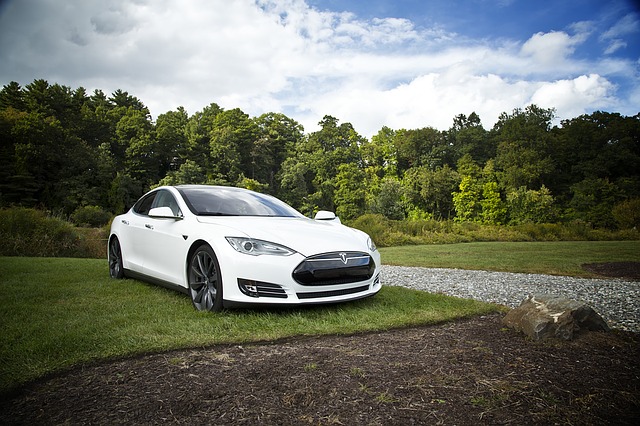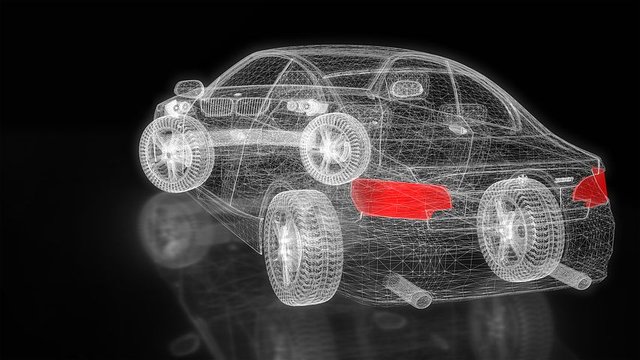Electric cars
Electric cars are becoming commonplace in our world. A few years ago electric cars would have been completely frowned upon but like all things, technological advancements in the area of battery density and electric motor design have made electric cars a more viable option. More people are opting to drive electric cars and it is being coined as the future of transport. There are however both positives and negatives to electric cars. So, let me tell you about them.
 )
)
Source
POSITIVES OF ELECTRIC CARS:
1.Quick and Quiet cars:
Electrics vehicles or EVs for short, generally are very silent because they don’t have engines and exhausts, the torque (axle turning power) is also very instant. This makes electric cars really silent during operation and also offers superior ride quality. EVs are really smooth,stepping on the accelerator provides instant power to the wheels and this power doesn’t come with vibes or turbo lag found on the likes of petroleum or diesel powered internal combustion vehicles. The experience of driving an electric vehicle is very satisfying and fun.
2.Low maintenance:
Electric vehicles have far fewer moving parts than cars with an internal combustion engine, because of which wear and tear is also lesser. The lack on an engine and everything that goes with it also means that you don’t need to do the regular maintenance stuff like changing the engine oil, radiator fluid and so on. Electric cars also have something called regenerative breaking, this allows the brakes to transfer the energy that is created during braking and convert it into power that is sent back to the battery. This makes the brakes last longer than in conventional cars.
3.Electric cars are cheaper to run:
In most parts of the world, electricity is still cheaper than gasoline or diesel. Electric cars offer more miles per dollar than most conventional cars do. EV’s almost run at a third of the cost of what conventional cars run at and in a few cases costs can even be cut to as low as a forth of what conventional cars would cost you. This coupled with the fact that electric vehicles are also low maintenance means that you save money on repairs that you would potentially need to get done with conventional cars. Put two and two together you have vehicles that run at a fraction of the cost of what cars with internal combustion cars would run at.
4.Reduces the Environmental impact of burning Fossil Fuels:
Electric vehicles reduce the impact that is created by burning fossil fuels,there are no tailpipe emissions on EVs. Even in areas that are dependent on coal for electricity, Electric vehicles still help substantially in reducing emissions. In areas where there are mixed power grids that are reliant on more renewable sources like solar, hydro and wind, the emissions are cut drastically. Methods to recycle electric car batteries are also becoming common.
NEGATIVES OF ELECTRIC CARS:
Shorter Range:
Most electrical vehicles have a range of about 100 miles on a single charge which is lesser compared to what cars with internal combustion cars can achieve with a single tank. While in most cases the 100 Mile range would suffice for day to day commutes and most city use. Electric vehicles still aren’t ready for long distance travel.Long charging times:
The short range isn’t the only problem that electric vehicles have they also take a long time to charge. Most cars top up at a rate of 20-25 miles in an hour of charging from your home’s 240V wall outlet. There are faster public charges that can provide up-to 60% charge in a matter of half an hour but,this is still a very long time in comparison to the 10 or so minutes that it takes to fill a tank in a gasoline or diesel. This coupled with the fact that public chargers for electric vehicles are fewer and less widespread than fuel pumps also makes it hard for a lot of people to choose electric cars especially if they tend to go long distances on their cars.Higher initial investment:
The cost of owning an electric car might be lower than that of owning a conventional car but the cost of buying one is much higher. The cheapest of electric cars costs anywhere between US$ 20,000-30,000 and more luxurious models retail in the hundred thousand mark. This makes buying an electric vehicle, at the moment quite the expensive affair. You will be spending at the least a $10,000 more to buy one. In most cases electric vehicles pay for themselves overtime but the higher cost does put off a lot of buyers from driving one around.
So those are the positives and negatives of owning an electric car. So will you be picking one up anytime soon

[Source](https://pixabay.com/en/photos/?q=electric+car
Source.http://positivenegativeeffects.com/electric-cars